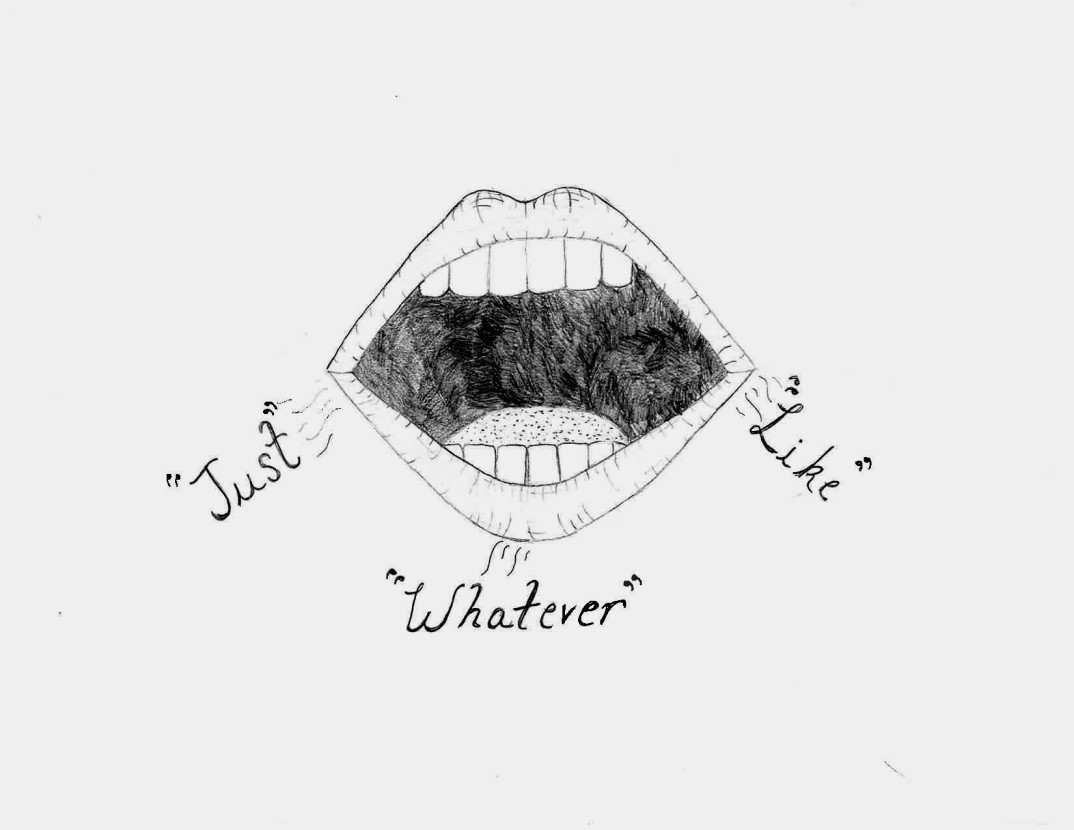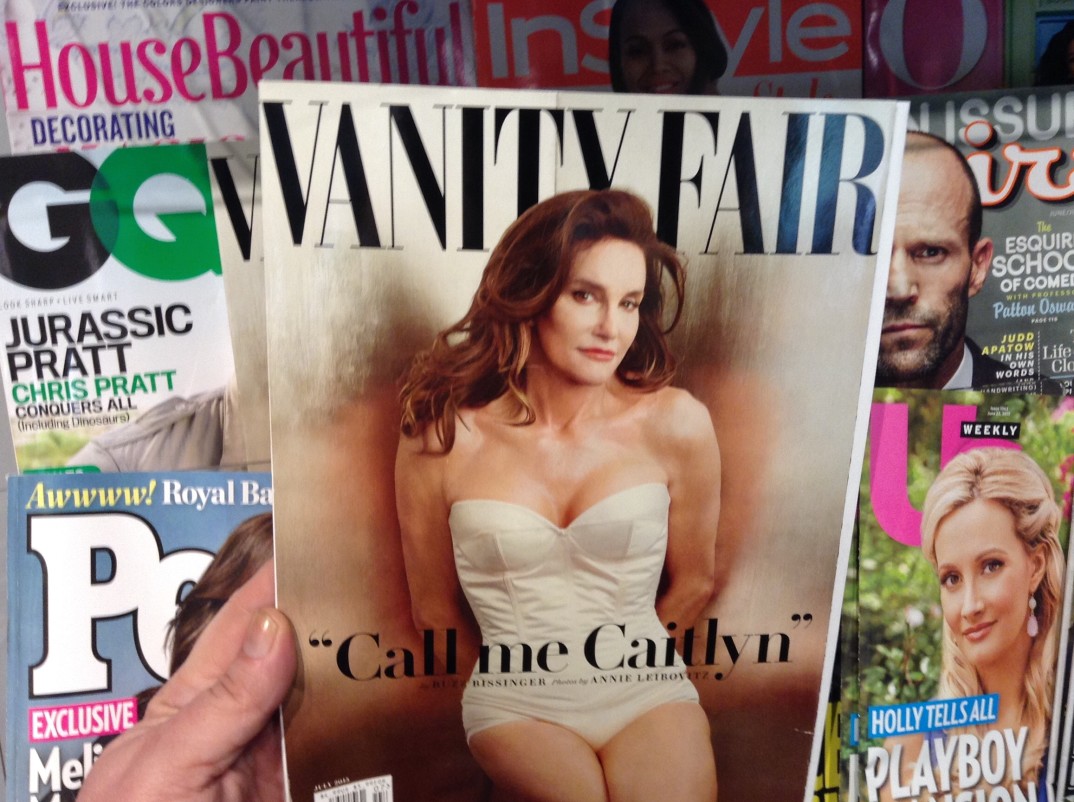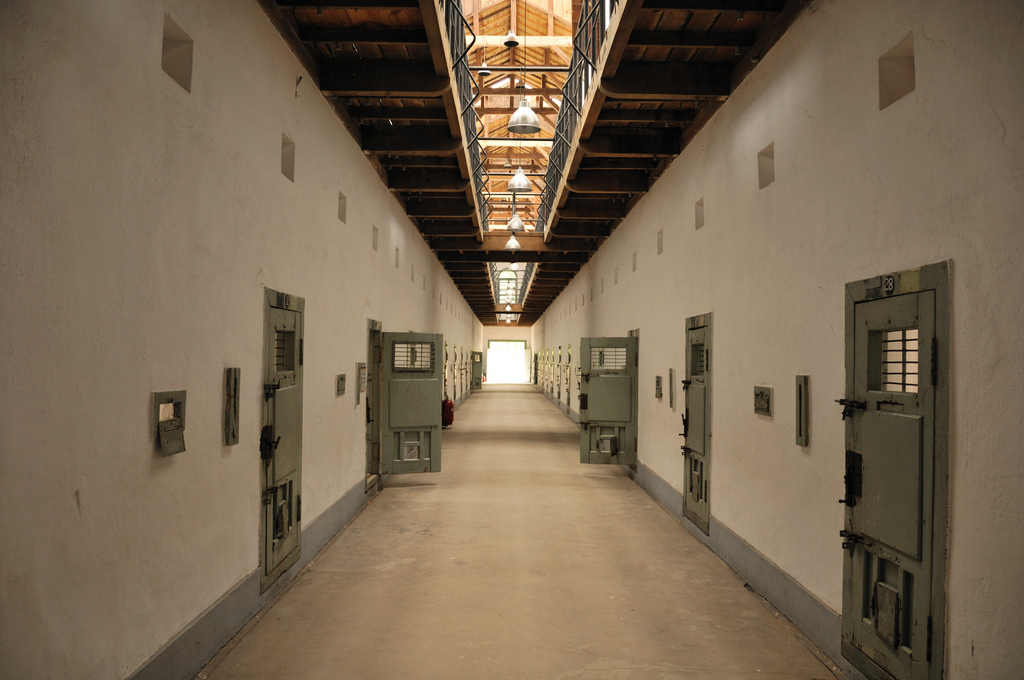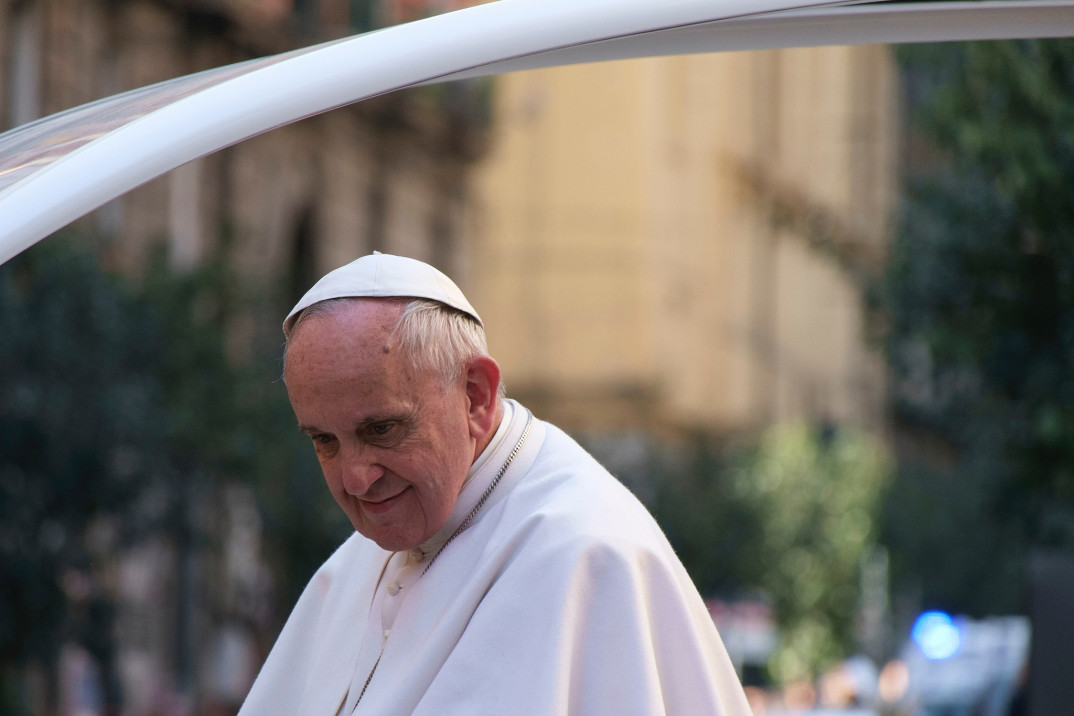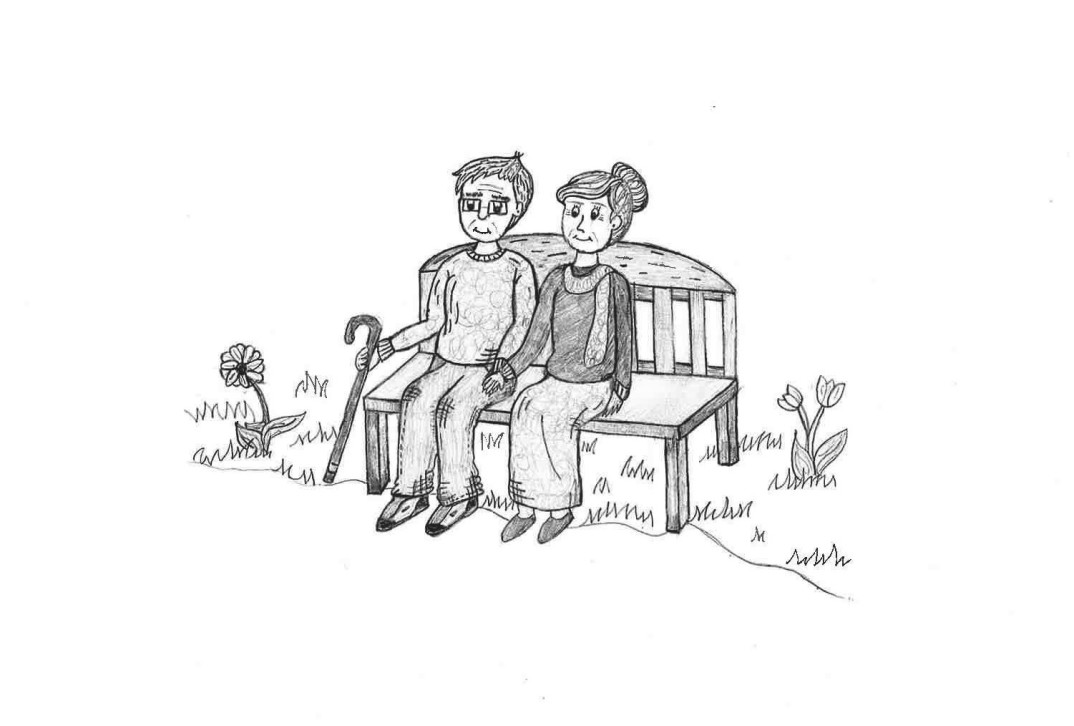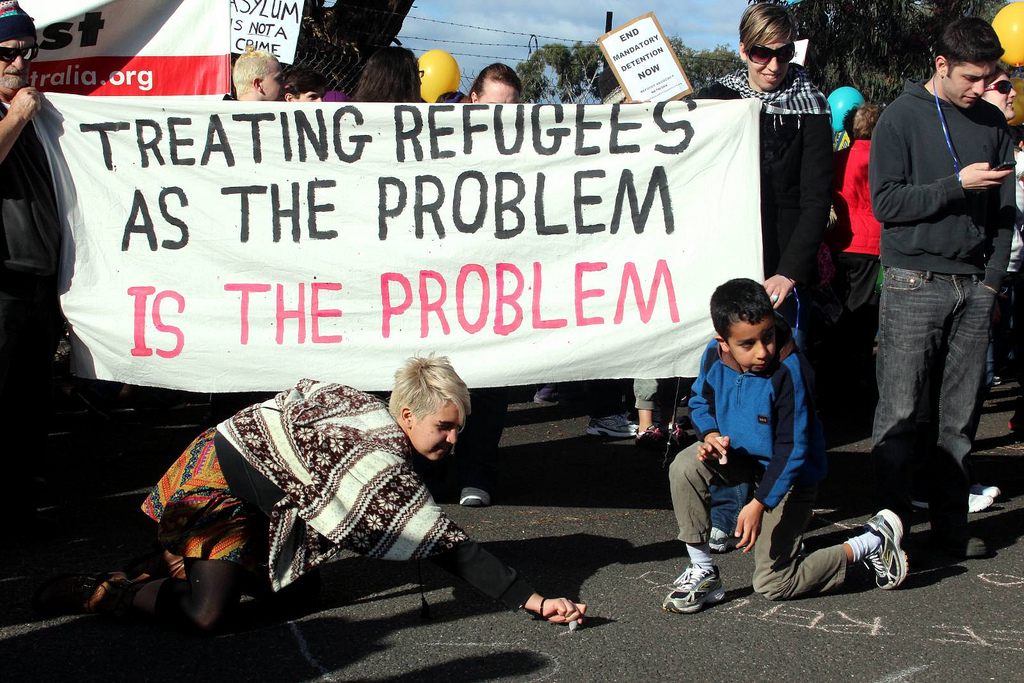It’s no secret that living a healthy lifestyle is a key factor when it comes to leading a long, happy life. Public discourse on this topic has grown increasingly over time with diet trends and programs, nutritional supplements, and even pharmaceutical and medical solutions becoming a part of our everyday lives. We are infiltrated on a daily basis with encouragement to put healthier things into our bodies in the form of TV and film references, news outlets, social media, and advertisements, just to name a few. First Lady Michelle Obama’s advocacy for creating a healthier generation, such as her “Let’s Move” campaign and mandated modifications to school lunches, has become very visible in the public eye and is a well-known aspect of her work in the White House. All of these factors combined, plus many more, make it clear that as a society, U.S. citizens are more aware than ever of the importance of staying active and eating well.
Genome Editing: A Slippery Slope?
On September 18th, a research team from the Massachusetts Institute of Technology released a report detailing advancements in the genome-editing CRISPR system. The CRISPR system releases an enzyme that cuts and removes certain sections of DNA that are damaged or mutated and replaces them with a healthy DNA sequence. However, these scientists discovered a new enzyme, Cof1, which may now serve as an alternate to the previously used enzyme Cas9. Using this new enzyme, research teams have the ability to narrow their focus to very specific sections of the DNA double helix. Additionally, the CRISPR system cuts DNA in a different way, improving the efficiency and quality of the repair site.
A Right to Die
The California legislature recently passed a controversial bill, which they are calling the “End of Life Option Act”. If signed by the Governor, it will go into effect this January. The bill states that it would allow adults suffering from terminal illness that meet “certain conditions” to request and be administered a dosage of life-ending drugs. There would need to be documentation of both oral and written requests. As an accompaniment, it adds that doctors, workers, etc. will not be treated as criminals or subjected to disciplinary action as a result of the lawful practice of this procedure. Euthanasia Pro Con does a very good job of bringing together some of the various arguments for and against the so-called “right-to-die” laws.
Just, Like, Whatever: Vocal Tics and Gender
About a month ago, “Examining Ethics,” Prindle’s podcast, opened with a brief discussion of women’s vocal tics. The issues and opinions surrounding such tics as vocal fry, upspeak, and use of “like” and “just” frequently have been on my mind lately as well.
Continue reading “Just, Like, Whatever: Vocal Tics and Gender”
What We’re Reading: September 24, 2015
More Food Banks Serve Hungry College Students (CNN)
Katie Lobosco
“They may be studying at high-priced institutions, but a growing number of U.S. college students rely on food pantries for their next meal.”
It’s Time to Get Serious about Reducing Food Waste, Feds Say (NPR)
by Allison Aubrey
“We consumers let a lot of food wilt or go sour in our refrigerators. And we may toss out items when they pass their sell-by dates — even though the food is still safe to consume.”
Ex-hedge funder buys rights to AIDS drug and raises price from $13.50 to $750 per pill (Raw Story)
by Tom Boggioni
“This is not the first time the fledgling pharmaceutical executive has come under scrutiny. He started the hedge fund MSMB Capital while in his 20’s and was accused of urging the FDA to not approve certain drugs made by companies whose stock he was shorting.”
Turn Food Waste into Ice Cream for Fun and Profit (The Plate)
Tracie McMillan
“When Obama administration officials announce the nation’s first-ever goals for reducing wasted food Wednesday morning, most people probably think of donating surplus food to charity. But a new study from researchers at the University of Pennsylvania, Drexel University and Cabrini College suggests that part of the solution might be a little more tasty—and profitable: House-made ice cream, freshly fried veggie chips, and smoothies.”
Extreme altruism: should you care for strangers at the expense of your family? (Guardian)
Larissa MacFarquhar
“Julia believed that because each person was equally valuable, she was not entitled to care more for herself than for anyone else; she believed that she was therefore obliged to spend much of her life working for the benefit of others.”
Hey, media: Those gentrifying neighborhoods had residents before the yuppies moved in (The Grist)
by Ben Adler
“The New York Times is being racist, classist, and colonialist when it writes about rich white people discovering off-the-radar neighborhoods.”
Check out these links related to our latest writing on The Prindle Post:
Sarah Ertelt: Alternatives to Incarceration: The Impact of Prison on the Black Community
—The Black Family in the Age of Incarceration (Atlantic)
by Ta-Nehisi Coates
Tourist or Terrorist?
Last week, Egyptian army aircraft mistakenly bombed a group of Mexican tourists, under the impression that they were Islamist militants. The tourists were enjoying a barbecue in the Western desert, Bahariya Oasis, when they were attacked. When the tourist group attempted to flee from the bombing, ground forces shot at them. Although exact numbers have been disputed, at least two Mexican tourists are confirmed dead and multiple tourists and Egyptians were injured.
Resistance to Antibiotics in Meat Production
As the human population increases exponentially, a new pressure has fallen on traditional sources of food. Growing demand in the United States and the rest of the world has brought the issue of meat production into new prominence–especially as antibiotic use among livestock and poultry reaches an all time high. While antibiotics keep herds healthy–and thereby fiscally beneficial–they come with risk: the possibility of antibiotic resistance.
Continue reading “Resistance to Antibiotics in Meat Production”
Preparing for Pope Francis’ U.S. Visit
Pope Francis will begin his first visit ever of the United States tomorrow, when he lands in Washington, D.C. after a four day visit to Cuba. His visit is highly anticipated and there has already been a threat on his person that has recently been disrupted by U.S. authorities. The Pope’s visit comes at a critical time as the presidential campaigning for the 2016 elections has raised awareness and debate over a variety of issues. What we can expect from Pope Francis is that he is not only going to make a stance on these issues but also raise awareness on other ones.
Caitlyn’s Costume Controversy
Spirit Halloween released a costume for Halloween 2015 in the likeness of Caitlyn Jenner’s Vanity Fair magazine cover. The immediate reaction of many was one of disgust, feeling that the costume was mocking the former Olympian and her recent transition. Others were concerned that the costume perpetuates a transphobic view. Vincent Villano, from the National Center for Transgender Equality, sums up these views by saying “There’s no tasteful way to ‘celebrate’ Caitlyn Jenner or respect transgender people this way on the one night of the year when people use their most twisted imaginations to pretend to be villains and monsters.”
Kim Davis: Civil Activist or Criminal?
Kim Davis, a county clerk from Morehead, Kentucky, was jailed recently for refusing to issue marriage licenses to a homosexual couple and two heterosexual couples on religious grounds. “I never imagined a day like this would come –“ she says, “- where I would be asked to violate a central teaching of Scripture and of Jesus Himself regarding marriage. To issue a marriage license which conflicts with God’s definition of marriage, with my name affixed to the certificate, would violate my conscience.” Continue reading “Kim Davis: Civil Activist or Criminal?”
What We’re Reading: September 17, 2015
6 Things You Should Know about the Iran Nuclear Deal (Politifact)
by Linda Qiu
“With 41 Senate Democrats backing the historic agreement between Iran and five world powers, the Iran nuclear deal is on its way to becoming a done deal, notching a foreign-policy win for President Barack Obama…The 159-page deal may hinge on nuclear physics, but understanding the basics shouldn’t be rocket science. We’re here to help. Here are six points you need to know.”
Meet the Companies That Are Trying to Profit from Global Warming (Vox)
by Brad Palmer
“Global warming won’t necessarily be bad news for everyone. For some companies and countries, it might even prove quite lucrative.”
Scientists Want to Study the World’s Best Humans (NY Mag)
by Melissa Dahl
“Researchers at Wake Forest University recently won a $3.9 million grant intended to fund a three-year research initiative studying the most morally upright people they can find, nominated by the people who know them. They hope that these ‘moral superstars,’ as the researchers dubbed them, will provide some lessons for the rest of us on how to be good.”
California Approves Physician-Assisted Suicide (NPR)
by April Dembosky
“A controversial bill to legalize physician-assisted suicide in California is headed to the governor for consideration, after almost nine months of intense — often personal — debate in the legislature. If Gov. Jerry Brown signs the bill, California would become the fifth state to allow doctors to prescribe lethal medication to terminally ill patients who request it, after Oregon, Washington, Vermont and Montana.”
Judging a Person by Their Friends (Practical Ethics)
by Jim A.C. Everett
“Is it a legitimate strategy to infer an person’s ethics through their friends? On the basis of limited information, should we judge a person by their friends?”
Here are some great ethics-related videos to watch when you’re finished with your reading:
Jonathan Haidt: The Moral Roots of Liberals and Conservatives
Sarah Silverman: Being Put Off By Political Correctness is a Sign of Being Old
Alternatives to Incarceration: The Impact of Prison on the Black Community
Bruce Western’s introductory video to Ta-Nehisi Coates’ article in The Atlantic titled “The Black Family in the Age of Mass Incarceration” highlights startling statistics concerning the still booming rate of incarceration in the United States. Between the years of 1940 and 1980, every 100 in 100,000 Americans were incarcerated. Continue reading “Alternatives to Incarceration: The Impact of Prison on the Black Community”
Angelina Jolie: The Media and the Mastectomy
Angelina Jolie wasn’t the first, nor will she be the last.
Double mastectomies are widely recognized as an effective preventative measure for individuals carrying genetic mutations, particularly the BRCA1 or BRCA2 genes, that put them at risk of developing breast cancer.
Continue reading “Angelina Jolie: The Media and the Mastectomy”
Guam’s Chemical Castration: A Just Punishment?
Recently, Guam’s Legislature passed a bill 8-7 requiring the chemical castration of convicted sex offenders before being released on parole. The Chemical Castration for Sex Offenders is a 48-month pilot program allowing for convicted sex offenders and pedophiles scheduled to be released in the next six months to undergo the castration process one week before their release, on the prisoner’s dime. These prisoners will then be monitored for progress through the remainder of the program.
Continue reading “Guam’s Chemical Castration: A Just Punishment?”
How Much Sleep Is Enough Sleep for College Students?
DePauw prides itself in being one of the top liberal arts colleges in the Midwest and throughout the country. With this ranking, students on DePauw’s campus experience rigorous courses and many also choose to be involved in numerous clubs, organizations and activities on campus. Because of our busy schedules, students on DePauw’s campus are forced to manage each aspect of their lives carefully in order to be the best student, teammate and peer as possible. Even with a carefully managed schedule, there seems to be one major problem on this campus and the majority of campuses around the country: lack of sleep.
Continue reading “How Much Sleep Is Enough Sleep for College Students?”
Lack of Educational Enrollment Drives Militancy in the Middle East
On September 2, the Associated Press reported sobering statistics detailing the predicament of middle school age children in five conflict-scarred Middle Eastern countries. According to UNICEF, forty percent of children from Syria, Iraq, Yemen, Libya and Sudan are currently unenrolled in school, with a strong likelihood that this figure will continue to increase to fifty percent in the near future as a result of enduring conflict in the region.
Continue reading “Lack of Educational Enrollment Drives Militancy in the Middle East”
Pope Francis Reconsiders Excommunication for Abortions
Since the issue rose to prominence, the Catholic Church has deemed abortions immoral and worthy of instant excommunication. For those non-Catholics, excommunication is getting kicked out of the Catholic Church and barred from re-joining unless a bishop lifts the excommunication. Excommunication usually occurs after committing a grave sin, so in the case of abortion, the murder of an unborn.
Pope Francis, the current pontiff of the Catholic Church, announced on Tuesday that as part of his “year of mercy”, he is granting all local priests the ability to lift the excommunications placed on women who for one reason or another got an abortion. In his letter he said, “absolve of the sin of abortion those who have procured it and who, with contrite heart, seek forgiveness for it.”
This immense decision holds a lot of ethical implications for old-school Catholics as well as a newer generation of Catholics. For many people of my grandparents’ generation, abortion is not something that should be 1) talked about or 2) done at all under any circumstances. Yet for people in Generation Y, abortion is discussed less as an ethical issue and more of an issue of ownership over your own body.
Regardless of my personal beliefs about the topic of abortion, I applaud Pope Francis for making the Catholic Church less harsh and judgmental. The Catholic Church has not always been a champion of inclusion. With strong beliefs on many “hot topics” these days like gay rights, abortion and divorce, people are turned off from Catholicism. But is a church’s job to try and include everyone? Isn’t that why we have millions of different faiths today? Do people have a problem with the Catholic Church’s views because of its long history or because of its strong views?
My preferred version of the Catholic Church is one where kindness and acceptance are stronger than those of judgment and strict adherence to the rules.
The Other 9/11: Remembering and Forgetting
Fourteen years have passed since September 11th, 2001 and now 9/11 has become a phrase that signifies the terrorist attack of the World Trade Center and the Pentagon in 2001. The post-9/11 memorial events, memorial buildings, related films and literature have indoctrinated us to believe that 9/11 marks the day of terrorism attacks by the Islamic terrorist group al-Qaeda. The occupation of 9/11 in of our collective consciousness signifies how some histories are remembered over the expense of others.
Continue reading “The Other 9/11: Remembering and Forgetting”
Learning How to Die: Lessons from Oliver Sacks
During my first year at DePauw, I was assigned a reading from a book called A Man Who Mistook his Wife for a Hat. My interest was so piqued by the assigned snippet that I couldn’t help but read the entire book. I was captivated by the accessible and insightful way the author, Oliver Sacks, relayed unique patient case studies that he had encountered in his career as a neurologist. Sadly, Oliver Sacks, who touched many people through both his medical practice and his writing and who made many lasting impacts in his field, passed away last Sunday, August 30, of terminal liver cancer. Continue reading “Learning How to Die: Lessons from Oliver Sacks”
What We’re Reading: September 10, 2015
Brutal Images of Syrian Boy Drowned Off Turkey Must Be Seen, Activists Say (New York Times)
by Robert Mackey
“A sense of weary resignation at the plight of the Syrians — and hundreds of thousands of other refugees and migrants taking desperate risks to reach the safety of Europe — was briefly punctured by horrifying images of one of the young victims, a small boy whose body was discovered, face down in the sand, by a Turkish police officer.”
Does the Tech Industry Even Deserve Women? (Broadly)
by Cecilia D’Anastasio
“It’s hard to be a feminist in tech, as countless horse-beating articles have confirmed over the last few years. It can feel like you’re ride-or-die with women or you’re just another complicit brogrammer. Potential whistleblowers weigh being tolerant of abuse or out of a job. Harassment happens, startlingly often and unprovoked, and it can feel it comes with the territory of tech jobs—just like a signed contract and a fridge stuffed with craft beer. ‘Lean in’ all you like, but in an industry where women largely lack the structural support to remain happy and healthy, there’s an underrated third option: ‘leaning out.’ ”
Public Goodbyes (Inside Higher Ed)
by Colleen Flaherty
“Like most breakups, those between higher education and the academics who choose to leave it typically happen quietly. But as in romance, sometimes these breakups become very public affairs — usually when an academic decides to reflect on the decision in a blog or other medium. The genre, called ‘quit lit,’ has been around for several years, at least according to social media.”
The Worst of the Worst (New Yorker)
by Patrick Radden Keefe
“Clarke may be the best death-penalty lawyer in America. Her efforts helped spare the lives of Ted Kaczynski (the Unabomber), Zacarias Moussaoui (the so-called ‘twentieth hijacker’ in the 9/11 plot), and Jared Loughner (who killed six people and wounded thirteen others, including Representative Gabrielle Giffords, at a Tucson mall).”
Is Banning the Hijab the Best Way to Fight Extremism in Egypt?
Women that are a part of Egypt’s 90% Muslim majority are facing a new obstacle against their faith: multiple restaurants, pools and resorts are banning women from entering if they are wearing a veil. Few women appear in public without a veil, whether they opt for the hijab, which covers the hair only, or the niqab, which covers the entire face except for the eyes.
The level of discrimination varies from specified business operation hours for those wearing a veil, to making veiled women swim in a separate pool. According to The Economist, A new Facebook page has been created called “Hijab Racism”, where people can specify which businesses are practicing discrimination against the hijab.
Egypt’s president, Abdel-Fattah al-Sisi is himself a devout Muslim, and has worked hard to display himself as an alternative to Islamist Extremism. However, taking actions such as revising textbooks and monitoring mosque sermons for the sake of fighting extremism may also be seen as combatant against the Muslim religion itself, and counter-intuitive to promoting religious freedoms that militant groups like ISIS shun.
Another issue surrounding the matters of religious extremism and “Islamophobia” is secularization. Egypt’s education minister has stated that he would prefer if girls refrained from wearing veils through primary school, at least until puberty. One side of the argument is that children wearing veils results from cultural tradition, not necessarily from theology. Others may see it as an attempt to begin secularizing Egypt in order to prevent Western countries from viewing Egypt as extreme, and also to prevent extremist cells from taking root while Al-Sisi is in power.
The current question is whether secularization is the appropriate response for traditionally Muslim countries in the fight against extremism. If this strategy chafes too much against the desire for religious freedom in Egypt and similar countries, the results may be counterproductive. Although in early August the tourism minister warned that establishments banning women wearing a veil will be shut down, no action has been taken yet.
Whether this warning towards discriminating against the hijab is taken seriously or not may affect future relationships between Egypt’s Muslim population and their government.
The Price of Being a Refugee
A recent tragedy in Austria, where 71 decomposing bodies of refugees, including 3 children, were found in the back of an abandoned truck, is yet another in the ongoing saga of Europe’s refugee crisis. Due to severe instability in much of the world today, the number of refugees seeking asylum has drastically increased. Most come from the countries of Kosovo, Syria and Afghanistan, and some from Iraq, Pakistan and Ukraine. In addition to the influx of refugees, the practice of the human trafficking of refugees is on the rise as well.




